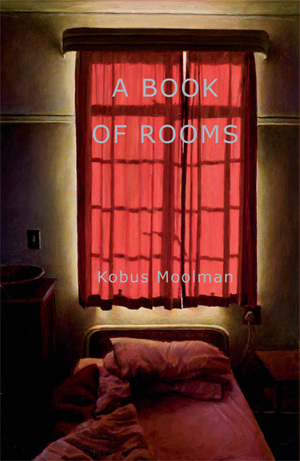‘Cloud Pibroch’ by James McGonigal
-Reviewed by Afric McGlinchey–
Poetry is a matter of personal taste, of course. This pamphlet, McGonigal’s third, appeals to me because the images are particularly distinctive, although sometimes they are so striking as to be distracting. But where others might lapse into lyricism rather than substance, McGonigal’s magical and surprising imagery has an assuredness which does hold up under scrutiny. In ‘This was the Year of Waking Up’ he writes: ‘I felt rooted like a tree at first/but soon caught the trick of moving with the wind.’ This captures the essence of his style: poems of depth, carried lightly. There is an appreciation of the slightest moments: ‘Even a stray glance has its lifetime now/as we synchronise bodies like dancers/back to back.’ Ostensibly unconnected titles provoke the reader to seek further meaning. For example, a beautiful little poem opens with: ‘How could we have held clouds in both hands/and wrung them out like dishcloths? Our children/woke with snowflakes on their brows.’ This poem is titled ‘Release of Prisoners’. The reader senses a new consciousness in the poet: ‘voices just outside the tent/have sung us wide awake.’
The chapbook is dedicated to McGonigal’s father, whose presence is sensed obliquely in many poems: ‘his skull resonated with epochs of snow’ (Fathers and Sons); ‘The day the fever turned a Mondrian shade of blue – /I thought they were selling the air above me;’ ‘sorry earth that was crushed and torn’ (Time of Fever). While his father is not mentioned directly, there is a low-key mourning that hums just below these lines.
Language is a motif, appearing frequently in one form or another: in ‘water vowels’ (‘Anniversary’); in ‘a sign language of teeth and tongue…a cursive script of drool’ (At Mutehill Farm); in the ‘blarney’ of light: ‘uttering whole fields…articulating every thorn upon the bough’ (First Light); and in writing: ‘the wind puffed some words from its script’ (Hesitant start); ‘the wooden staircase spirals to a loft where texts/are still composed:/their bed a desk where love is written and re-reread.’ (Low Country and Western).
Sound (or the lack of it) also forms a subtle backdrop: ‘listening for the voice of water (The African Sun); ‘silence: its throat open as a cloud’ (the Elgin Marvels); ‘a shuttle clacked for hours in the loom of his throat’ (Fathers and Sons); ‘the bees would play their old-time tune/with wing beat, fore-feet, the nectar jazz.’ (First Light). ‘What noise did it make, how like a river’s breath,/how different from the rain’s persistent questioning?/No, I don’t think we heard.’ ‘Not a bird to be heard among riverbank leaves…./So whistle your own bird-thrapple tune to the air.’ (Soundings.)
Essentially, there is a lightness in this collection, with recurrent images of clouds, wind, moving water, leaves on trees – things of an ephemeral nature.
Throughout, clouds continue their persistent presence: ‘clouds rushed along the sky’s corridor’; (Last Thing) ‘a gambol of clouds re-passing trees and so forth’(Season of Frost); ‘Evening of the end of clouds’ (Appearances) ‘clouds swinging bucketfuls of rain’, (Sleepwalking); ‘clouds across the moon/were fingers tapping a drum.’ (The Prize). They are the epitome of the transitory, yet an endless presence in the landscape of the poet’s life. A strong undercurrent of nature is felt, not only clouds and wind but rivers and trees, fish and deer, frogs and bees too, and it is these things which enable the poet to keep his bearings, to remain rooted.
Some poems are a kind of anthem for émigrés: ‘I was watching pinball moves of ants across porch timbers/and thinking how in all their syncopated searchings out and/overturnings they left scent trails for the brothers to follow (New World). There is also a sense that all of us are exiles, in time if not in space: ‘In the dust were prints of every soul who’d walked/between grassy banks, driving a herd of hurts/down to the sea.’ (Migrant).
While there are intimations of something altogether darker (‘Can I return to the main point of this illness,/ the immediate wound, after some attempts/to stop its tongue of blood?’ (Release of Prisoners) ) on the whole, the direction of McGonigal’s latest collection is contrary to today’s cult of the sensationalising of dramatic subjects. It is in his nuances, underneath the tranquillity of his voice, that the more long-term impact is felt: ‘starlight must have blessed the skin/and broken it’; (Release of Prisoners); ‘Soon I wore the part like horse skin/visible only when bleeding or pestered by flies.’ (Understudy).
These poems pay attention – not only to the nuances of language, but of life. McGonigal focuses on the beauty of strangeness with his surreal and delicate images. His is a world of the natural, with small human touches added, while the subtle charge of occasional stings adds a piquancy to an otherwise pastoral collection.




Pingback: Poetry Pamphlets: A Top Ten « Sabotage